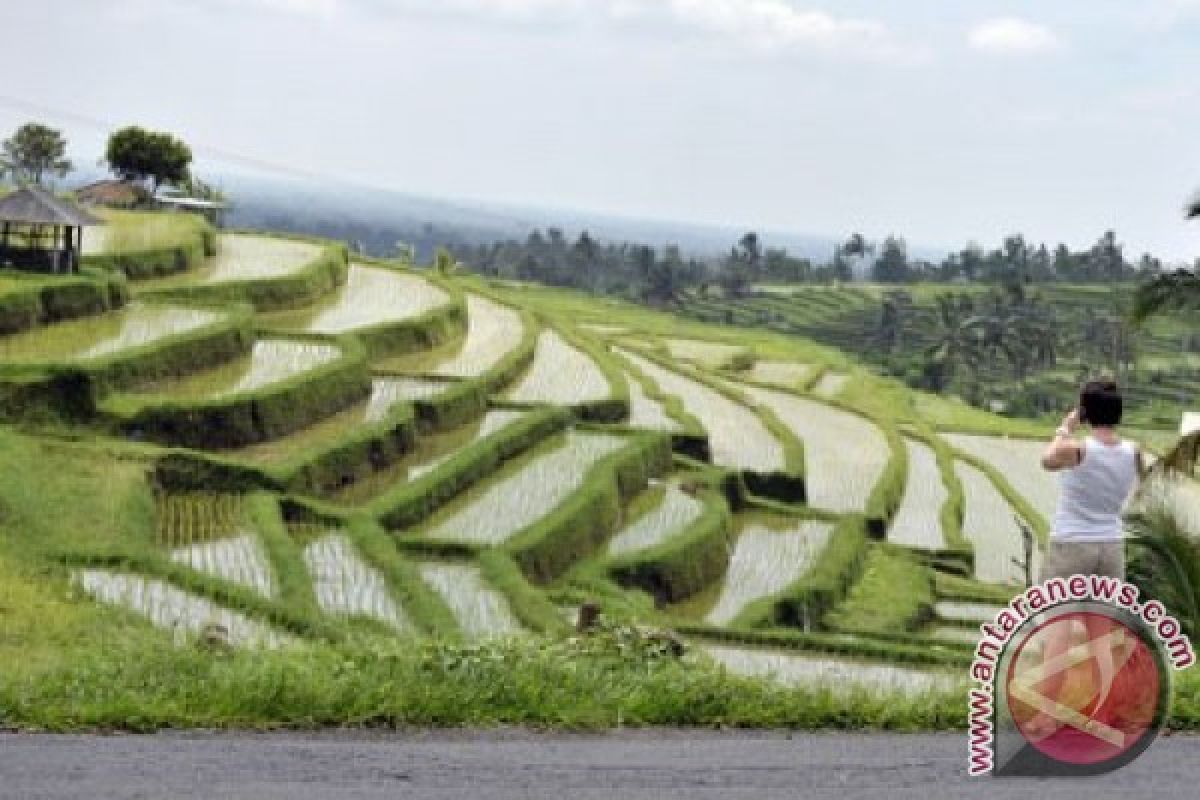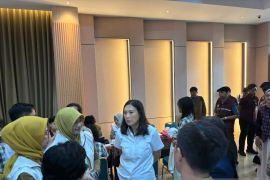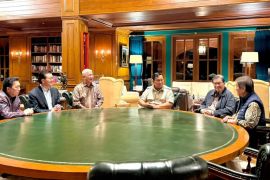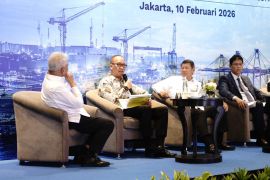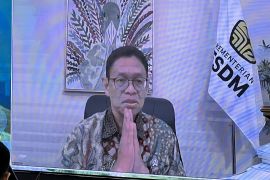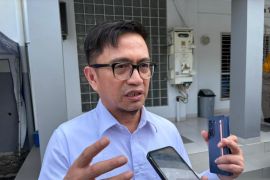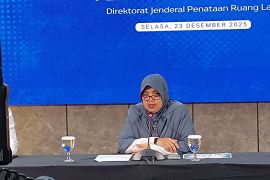Sedahan-Agung served as the protector of subak agricultural method under the district heads and mayors but now it has been eliminated."Jakarta (ANTARA News) - Ubiquitous land conversions on Indonesian island resort of Bali will sooner or later eliminate the traditional agriculture system, locally known as subak, if nothing is done about it.
Agricultural land conversion into villas and hotels in Bali for the interests of tourism and other businesses is growing at an alarming rate and threatening not only the local ecology but also productive farmland where subak irrigation system is applied.
Uncontrolled land conversion in some parts of Bali has resulted in ecological imbalance and degradation, leading to the destruction of subak.
I Wayan Windia of Udayana University has noted that the destruction of subak will affect all aspects of life on the paradise island.
"The destruction of subak due to the use of land for purposes other than agriculture has been discussed since a long time, but it has never been addressed completely," Windia pointed out in Denpasar last Saturday.
He noted that if the subak in Bali gets destroyed, the culture of Bali that has been passed on from generation to generation would also disappear sooner or later.
"The destruction of subak will destroy all economic sectors in Bali because they are all interrelated," he added, explaining that economic sectors, particularly tourism, on the island are based on local culture and tradition.
But he pointed out that in reality the tourism sector has destroyed the agricultural area and the subak in Bali.
Besides that, Windia explained that the elimination of the Sedahan-Agung institution has weakened the subak irrigation method.
The Sedahan-Agung institution was established in the 1970s, in every sub-district, for its officials to coordinate the activities of subak in order to help the heads of subak solve their problems, and to collect land-tax from subak farmers.
However, because of a central government regulation, the Sedahan- Agung was eliminated, because of which, no officials from the institution can solve the problem pertaining to subak.
"Sedahan-Agung served as the protector of subak agricultural method under the district heads and mayors but now it has been eliminated," he noted.
According to him, the absence of the Sedahan-Agung institution has made the subak traditional irrigation and agriculture organization seem like an orphan.
Meanwhile, Bali agricultural observer Gede Sedana stated in Denpasar on Tuesday that various efforts must be made to maintain the subak traditional agriculture method and to develop ecotourism in its areas.
Sedana noted that the development of ecotourism, in the areas where subak is being applied, will positively empower the local farmers.
"Empowering the farmers on the basis of sustainable nature will improve their welfare, manage the wealth of the local economy, and improve the integrity of local ecosystem," agricultural observer Gede Sedana stated here on Tuesday.
The dean of Dwijendra Universitys Faculty of Agriculture noted that ecotourism development is based on natural attraction with regard to support rural and cultural tourism.
According to him, ecotourism includes a number of important aspects concerning sightseeing tours, natural environment, local community involvement, local culture, and sustainability of the environment.
Gede Sedana then explained that subak, the traditional irrigation system in Bali, has various roles and functions to ensure food security, to control flood and erosion, and to maintain biological diversity.
Further, he stated that the government should give serious attention to subak and three other areas that have been recorded by UNESCO in its World Heritage List.
In June 2012, UNESCO officially acknowledged the traditional subak agricultural method on its World Heritage List.
Subak is a social organization of farmers who regulate irrigation during the cultivation of paddy on Bali Island for their own mutual benefit.
Therefore, the government should pay more attention to the farmers who practice subak, a traditional farming and irrigation method peculiar to the Indonesian island resort of Bali.
"The Balinese farmers need serious attention from the government especially after UNESCOs decision to include subak in the World Cultural Heritage list," Gede Sedana pointed out.
According to Education and Cultural Deputy Minister Windu Nuryanti, the struggle to get the subak system included in the World Cultural Heritage list has been a 12-year-long process.
Naturally, the farmers in Bali have welcomed UNESCOs decision and are determined to maintain and preserve the traditional irrigation system in their farmlands.
Subak is a traditional irrigation system that has been practiced in Bali for hundreds of years.
It plays a very important part in the life of the Balinese people who own rice farms.
This system ensures that water is fairly distributed during the dry season.
Members of the Subak social organization have equal rights, regardless of their caste, title or size of land holding.
In light of this, Windia of Udayana University has again expressed hope that the central, provincial and district governments will give the farmers land and building tax relief to help them maintain their traditional system.
"Besides that, the government is also expected to provide scholarship programs for the farmers children, so that they can pursue higher education," Windia noted.
He reminded the government that it was very important to pay serious attention to farmers and to ensure that subak is not known as a world cultural heritage that exists in an unkempt and dirty state.
Hence, he added that the government should pay attention to the needs of farmers, so that they are happy to work.
According to him, the attention should start from providing suitable water irrigation systems, the necessary seeds, the marketing of their products, tax subsidies and education scholarships up to university level for farmers children with high grades and high achievements.
(Uu.O001/INE/KR-BSR)
Reporter: Otniel Tamindael
Editor: Priyambodo RH
Copyright © ANTARA 2014
